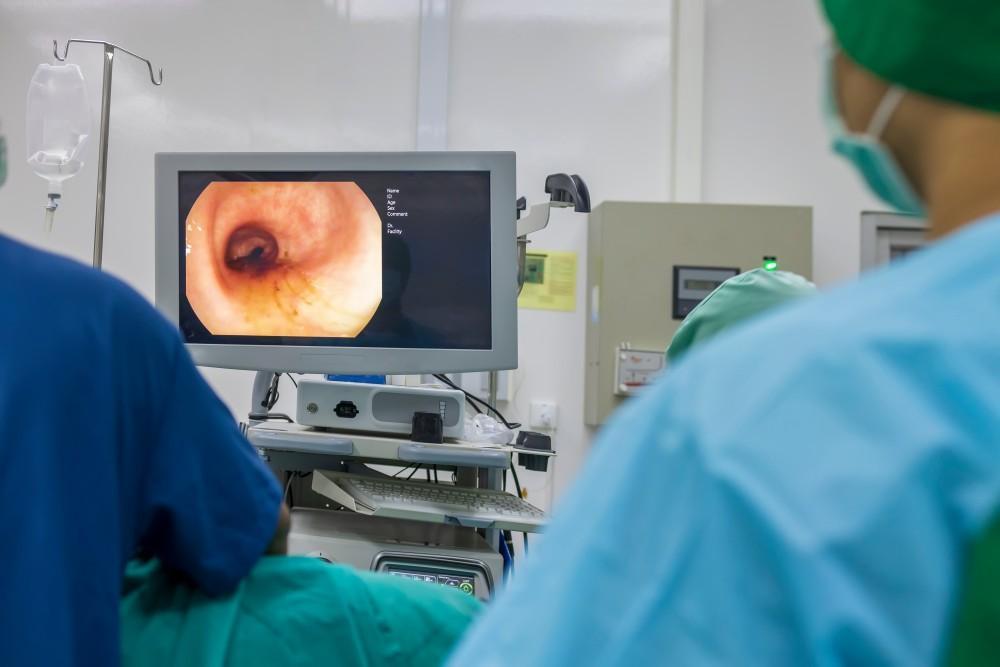
Lifestyle Tips for Diverticulitis

Diverticulitis is a painful condition in which small pouches in your intestines, called diverticula, become infected and cause a variety of symptoms, including nausea and vomiting. In the Western world, about half of adults over age 60 have diverticula, with 10% of them going on to develop diverticulitis.
At Colon and Rectal Surgeons of Greater Hartford, our colorectal experts want you to stay comfortable and avoid flares of your disease. After you receive a diagnosis and treatment plan from one of our offices in Bloomfield, South Windsor, and Plainville, Connecticut, you can make lifestyle adjustments that help control your disease.
Fill up on fiber
Luckily, a healthy diet is healthy for diverticulitis, too. Eat plenty of fiber-rich foods, such as:
- Leafy greens
- Cooked and raw vegetables
- Low-glycemic fruits
- Whole grains
- Nuts and seeds
Cut out unhealthy foods, such as junk food, processed foods, and white flours and grains. If you haven’t already adjusted to a Mediterranean diet or other healthy diet that incorporates plenty of vitamin- and mineral-rich vegetables and fiber, do so gradually. Too much fiber too quickly may cause gas that could irritate your gut lining and cause a flare.
The aim of dietary changes is twofold: First, it’s to provide your body with all of the nutrients it needs to help all of your organs — including your gut — function well and without pain. Second, it’s to increase your chances of having regular and comfortable bowel movements.
Help Nature call
Whenever you feel the urge to defecate, make sure you do so rather than trying to hold it in. Constipation and retained fecal matter may worsen your diverticulitis. Drink plenty of water so your stools remain soft and easy to pass.
If your diet is low in fiber or liquids, constipation could make bowel movements painful and irritate your gut. If you’re not getting enough fiber from your diet, or have trouble with constipation despite a high-fiber diet, try prunes or prune juice.
You can also sprinkle one teaspoon of ground psyllium seeds over a glass of liquid. Drink the preparation before it turns to gel.
In addition, you could benefit from over-the-counter stool softeners that contain polyethylene glycol. Avoid those with senna, which are habit-forming and irritate the gut lining. Don’t use stool softeners over the long-term, though: Contact us for recommendations and treatments that resolve short-term pain but protect your gut over the long-term, too.
Add in more exercise
In addition to fiber, water, and stool softeners, regular exercise can make it easier to “go.” Exercise doesn’t just build up your arm, leg, and core muscles. It also strengthens and tones the muscles in your intestines, so you can pass stool more comfortably and regularly.
If you haven’t been active in a while, start with a regular walk, working your way up to 30 minutes a day. Gradually add more intensity and variety. In addition to cardio, add in resistance training and techniques that help keep you flexible and stretched, too. Always inform and check with your doctor about changes to your exercise routine.
Switch to liquids during an attack
If you’re having a flare, concentrate on clear broths and other non-irritating liquids that keep you nourished without stressing your gut. Signs that you’re having a flare include:
- Nausea
- Vomiting
- Gut pain
- Fever
- Chills
- Diarrhea
- Constipation
Contact us as soon as possible. You may need a course of antibiotics to resolve the infection and other medications to help you stay comfortable as your gut heals.
Get the help you need
Although lifestyle changes can help you reduce your risk of complications from diverticulitis, if you’re in pain, you shouldn’t have to suffer. If lifestyle interventions and medications fail, you may benefit from surgery that removes the damaged parts of your intestine.
When caught and treated early enough, our surgeons may be able to remove just small amounts of your intestines and stitch the healthy parts together so you can eliminate normally. If diverticulitis persists for too long, and too much of your colon is damaged, you may need a total bowel resection and colostomy bag.
Get help for managing your diverticulitis so you can have normal and pain-free bowel movements and a pain-free life for as long as possible. Call our friendly, discreet team at 860-242-8591 today. Or, schedule an appointment online.
You Might Also Enjoy...


How a Colonoscopy Can Save Your Life

4 Signs You May Have Pilonidal Disease

Start the New Year Fresh with a Colonoscopy

5 Tips for Managing Your Crohn's Disease During the Holidays


